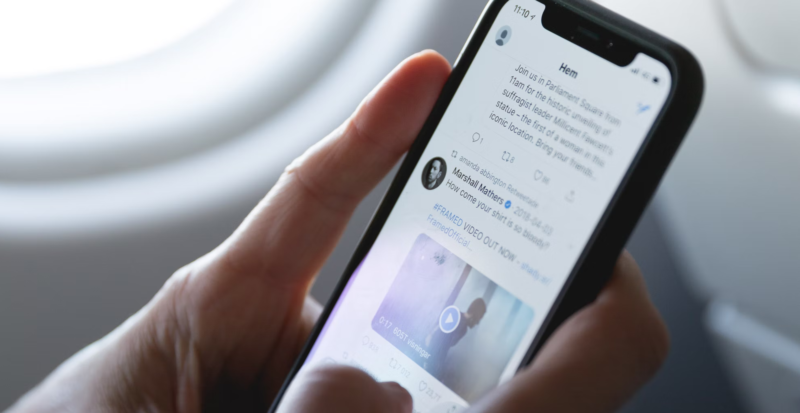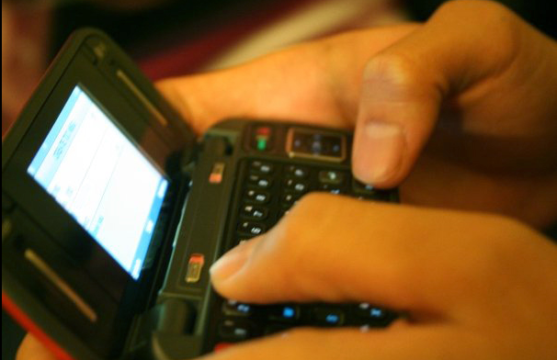
Violence & Impunity: Protecting Journalists in Colombia & Mexico
Violence against journalists is fortunately uncommon in many Latin American countries. But in some parts of the region it is of great concern.
A Daily Publication of The Dialogue
While political discourse takes place on all forms of social media, it is extremely prevalent in Latin America over Twitter, where heads of state and politicians take to the platform to connect with people and argue with one another. Billionaire Elon Musk’s plan to take over Twitter could shake up the composition of the region’s digital town hall, author James Bosworth said recently in his Latin America Risk Report. Musk said on Friday that his deal to buy Twitter is “temporarily on hold,” but if the deal proceeds, what changes could Musk make to the platform, and how would they affect Latin America’s digital political discourse? Would Musk be able to do away with rules against threatening language, as well as software that identifies and takes down disinformation-spreading botnets, as he has suggested? What sorts of changes need to happen in order for social media to offer both a freer and fairer platform for the exchange of ideas?
Doug Cassel, emeritus professor of law at Notre Dame Law School and U.S. nominee to the Inter-American Commission on Human Rights (IACHR) in 2017: “After Elon Musk’s expected takeover of Twitter, the prospects for political dialogue healthy for democracy in the region, already troubling, may become even worse. Money matters. Musk’s wealth—estimated at $265 billion—is nearly 10 times the gross domestic product of El Salvador, and about the same as the GDPs of Chile or Colombia. According to the World Bank, three quarters of the region’s residents have access to the Internet. Nearly all of those use social media, of which Twitter’s 100 million or so users account for more than 10 percent of all digital interactions. True, the region’s most followed tweeters tend to be athletes and artists. They typically tweet more about sports scores and songs than about social policy. But many political provocateurs tweet, and their falsehoods generate echo effects. Enter Musk. He criticizes ‘content moderation’ policies. Twitter used them, for example, to cancel 2,700 fake Russian accounts that disrupted the 2016 U.S. election and later suspended Donald Trump’s account after he repeated lies that the 2020 election was ‘stolen.’ Musk invokes free speech to argue that canceling Trump was morally wrong and ineffective. If regional tweeters were constructive contributors to democratic debate, perhaps the free speech obligations of governments should be extended to private companies such as Twitter. But many tweeters undermine democracy. In Guatemala, for example, smears and threats posted on social media drove honest judges and prosecutors into exile. Reasonable content moderation, within bounds, is healthy for democracy. Musk’s Twitter, one fears, will not be.”
Mary Hansel, former director of the Human Rights and Social Media Project at the University of California Irvine School of Law: “Elon Musk’s recent comments suggest that if he takes the Twitter helm, he may implement changes to the company’s content moderation protocols that threaten to undermine digital discourse in Latin America and elsewhere. Musk has referred to himself as a ‘free speech absolutist’ and posited that Twitter should be more ‘reluctant to delete things.’ These statements seem to align with a U.S.-centric approach to online speech. Pursuant to the U.N. Guiding Principles on Business and Human Rights, however, Twitter has a responsibility to respect international human rights law, as well as remedy any human rights abuses to which it contributes. Unlike the U.S. standard for freedom of speech, the international right to freedom of expression provides for one’s speech to be restricted to avoid infringing other people’s rights and on other specified grounds. Musk has also said Twitter should defer to local laws in moderating content, explaining that, ‘if people want less free speech, they will ask government to pass laws to that effect.’ Yet, under the Guiding Principles, Twitter may have a responsibility to push back against local laws to the extent they conflict with human rights standards. Indeed, to its credit, the company has done so in several high-profile instances. Marginalized communities will bear the brunt of any approach to content moderation that is out of step with international human rights. Hate speech and online gender-based violence on Twitter have devastating impacts, causing members of such communities to self-censor or leave the platform altogether. Musk’s ‘free speech absolutist’ approach, paradoxically, could end up silencing the voices of those most in need of being heard.”
César Ricaurte, CEO of press freedom and human rights organization Fundamedios: “I am not very optimistic about the changes Elon Musk will likely make to Twitter after he completes his acquisition of the platform. I consider a single individual owning a massive and global communication channel like Twitter to be bad news. Musk’s plans are not clear, beyond his repeated invoking of ‘freedom of speech’ and the enormous potential that Twitter has if it is freed from certain restrictions. The problem is that there is a very tenuous line between free speech and discriminatory speech, hate speech and harassment and aggression against activists and human rights defenders. Any reforms that Musk undertakes on Twitter should consider values and principles such as transparency in content moderation, civil society participation and independent third parties involved in the fight against disinformation, protection of activists and human rights defenders, as well as respect for international human rights law. Musk has not announced any plans to reform Twitter with any of the principles listed above. Musk should call for a broad multi-stakeholder dialogue in which all interested sectors of society are represented. It would be imperative for this dialogue to lead to the creation of governance mechanisms that are more in line with the strengthening of fundamental freedoms in democratic societies. These are the ideas we should keep in mind when it comes time to assess whether or not Musk’s Twitter reforms are on the right track.”
Vanessa Rubio-Márquez, professor of political science at the London School of Economics and former member of Mexico’s Senate and deputy government ministers: “It is of the utmost relevance to know how a company that serves almost 400 million people around the world—almost one-fourth of those in Latin America—is run, as it has a tremendous influence on the way we communicate, perceive and understand the world and vote. Elon Musk’s decision to purchase Twitter ignited the already growing debate around the regulation of social media. Twitter has been a public company since 2013 and is thus obliged to comply with a number of corporate government requirements, but there are questions around the additional regulation to which social media companies could be subject. It is no ordinary company. Content on the platform defines perceptions, their algorithms shape behaviors, their tone defines degrees of polarization and even violence in our societies. Twitter also collects users’ personal information, including geolocational information, that must be carefully managed and stored. The key challenge ahead—in Latin America and the world as a whole—is striking a right balance between state and self-regulation, together with open oversight of this industry, which is necessary given the platform’s social relevance. Four ‘Ps’ are going to define the debate around this specific regulatory environment in Latin America: populism, polarization and pendular politics—quite an explosive mix in which Musk’s entrepreneurial and innovation skills will be tested once again.”
Edison Lanza, former special rapporteur for freedom of expression at the IACHR: “The potential acquisition of Twitter by tycoon Elon Musk has fueled an important discussion on freedom of expression: who controls speech in the digital age. Constitutional law and international human rights law have established limits on governments’ ability to interfere with people’s freedom of expression. However, with the development of private Internet platforms, corporations have implemented community standards and algorithms to regulate speech. The discussions in Latin America about the need to regulate content disseminated over social media have grown in the past five years. There are dozens of projects under study in the region, and although regulations are often imposed with the best of intentions, solutions could be disproportionate and curtail freedom of expression. In their 2019 Joint Declaration, the United Nations and OAS Rapporteurs on Freedom of Expression called for the development of transparent oversight mechanisms that guarantee independence and involve multiple stakeholders to address moderation rules of content that could interfere with the exercise of freedom of expression. The Office of the Special Rapporteur for Freedom of Expression for the Inter-American Commission on Human Rights (IACHR) convened a summit in 2021 to discuss Internet freedom of expression in the Americas, with the quality of public debate, content moderation and digital literacy being the main agenda items. The news that the richest man in the world may acquire the main social network for public debate in the region reaffirms the need for the inter-American system to build standards to guide the regulatory processes and demand greater transparency from the owners of these social media platforms.”
Matías Jackson, attorney at the law firm Jackson Bertón Legal & Contable in Montevideo: “Elon Musk declared himself a ‘free speech absolutist,’ which may have an impact on how Twitter addresses content moderation in the future. Musk’s definition of free speech and the values associated with it are shaped by the United States as it is enshrined in the First Amendment. This concept differs from how Latin American countries traditionally understand free speech and how it relates to the Inter-American human rights system. Differences between the U.S. and Latin American understandings of freedom of expression arise in key aspects of Twitter’s moderation policies, such as policies on hate speech and censorship. Although freedom of expression has strong protections in Latin America and is considered a key element for the development of open societies, it is not an absolute right. Limits must be established. Even if these different approaches have also been true for Twitter before Musk, his free speech absolutism will clearly influence the platform’s policies around hate speech and disinformation. It’s important to remember that Twitter has committed to respecting the United Nations Guiding Principles on Business and Human Rights. The U.N. Human Rights Council has said, legality, legitimacy, necessity and proportionality must be consistently applied to AI technologies. This means that any technical measure or new feature that Musk may want to introduce to Twitter must comply with these requirements. The acquisition comes at a moment when there is growing talk of regulating social media. There are calls from civil society and international organizations such as UNESCO to make social media platforms more transparent and accountable. The new measures and policies that Musk introduces to Twitter may be a stepping stone for how the Internet is governed in the future.”
 The Latin America Advisor features Q&A from leaders in politics, economics, and finance every business day. It is available to members of the Dialogue’s Corporate Program and others by subscription.
The Latin America Advisor features Q&A from leaders in politics, economics, and finance every business day. It is available to members of the Dialogue’s Corporate Program and others by subscription.
Violence against journalists is fortunately uncommon in many Latin American countries. But in some parts of the region it is of great concern.
The US State Department is fostering new methods of engaging directly with Latin American citizens.
USAID created and operated “ZunZuneo,” a communications network aimed to destabilize the Cuban government.
 Political discourse is prevalent in Latin America via Twitter. Billionaire Elon Musk is seeking to buy the platform, though he said Friday that the deal was “temporarily on hold.” // File Photo: Marten Bjork via Unsplash.com.
Political discourse is prevalent in Latin America via Twitter. Billionaire Elon Musk is seeking to buy the platform, though he said Friday that the deal was “temporarily on hold.” // File Photo: Marten Bjork via Unsplash.com.
